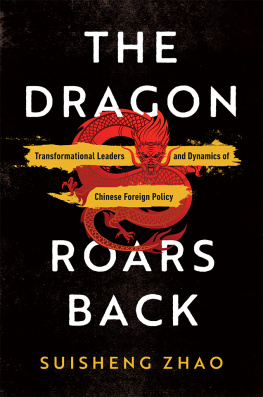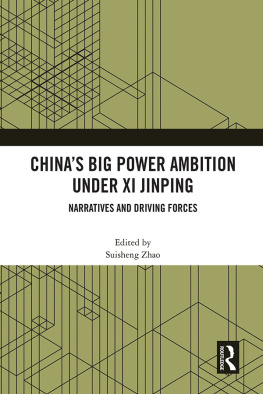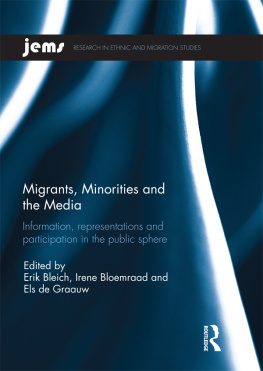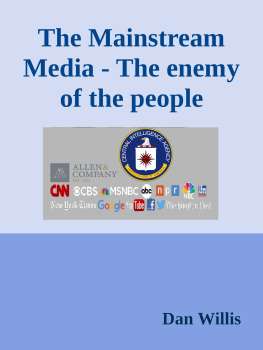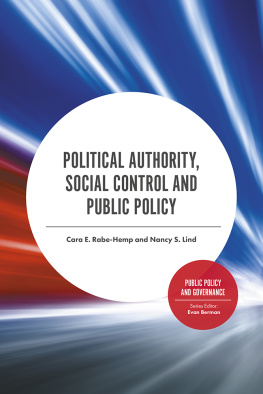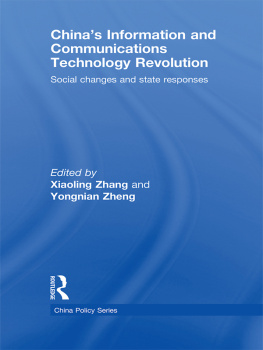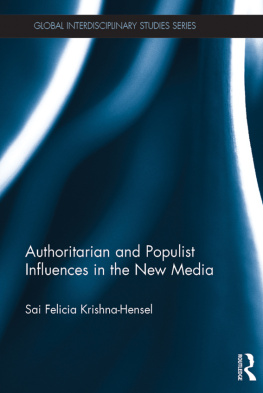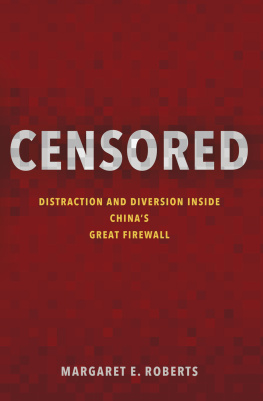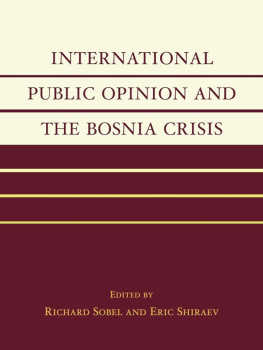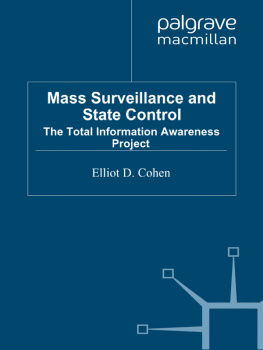
Chinese Authoritarianism in the
Information Age
This book examines information and public opinion control by the authoritarian state in response to popular access to information and upgraded political communication channels among the citizens in contemporary China. Empowered by mass media, particularly social media and other information technology, Chinese citizens access to information has been expanded. Publicly focusing events and opinions have served as catalysts to shape the agenda for policymaking and lawmaking, narrow down the set of policy options, and change the pace of policy implementation. Yet, the authoritarian state remains in tight control of media, including social media, to deny the free flow of information and shape public opinion through a centralized institutional framework for propaganda and information technologies. The evolving process of media control and public opinion manipulation has constrained citizens political participation and strengthened Chinese authoritarianism in the information age.
The chapters in this book were originally published as articles in the Journal of Contemporary China.
Suisheng Zhao is Professor and Director of the Center for China-U.S. Cooperation at Josef Korbel School of International Studies, University of Denver, and founding editor of the Journal of Contemporary China.
Chinese Authoritarianism in the
Information Age
Internet, Media, and Public Opinion
Edited by
Suisheng Zhao
First published 2018
by Routledge
2 Park Square, Milton Park, Abingdon, Oxon, OX14 4RN, UK
and by Routledge
711 Third Avenue, New York, NY 10017, USA
Routledge is an imprint of the Taylor & Francis Group, an informa business
Chapter 2 2018 Rogier Creemers. Originally published as Open Access.
Chapters 1 & 314 2018 Taylor & Francis
With the exception of Chapter 2, no part of this book may be reprinted or reproduced or utilised in any form or by any electronic, mechanical, or other means, now known or hereafter invented, including photocopying and recording, or in any information storage or retrieval system, without permission in writing from the publishers. For details on the rights for Chapter 2, please see Open Access footnote to Chapter 2.
Trademark notice: Product or corporate names may be trademarks or registered trademarks, and are used only for identification and explanation without intent to infringe.
British Library Cataloguing in Publication Data
A catalogue record for this book is available from the British Library
ISBN13: 978-0-8153-7914-0
Typeset in MyriadPro
by diacriTech, Chennai
Publishers Note
The publisher accepts responsibility for any inconsistencies that may have arisen during the conversion of this book from journal articles to book chapters, namely the possible inclusion of journal terminology.
Disclaimer
Every effort has been made to contact copyright holders for their permission to reprint material in this book. The publishers would be grateful to hear from any copyright holder who is not here acknowledged and will undertake to rectify any errors or omissions in future editions of this book.
Contents
Wen-Hsuan Tsai
Rogier Creemers
Shiru Wang
Paul Minard
Jinting Deng and Pinxin Liu
Xin Zhang and Xiaodong Ding
Maria Repnikova
Xuchuan Lei and Jie Lu
Kezhou Xiao and Brantly Womack
Bing Guan, Ying Xia and Gong Cheng
Jian Xu
Ashley Esarey, Daniela Stockmann and Jie Zhang
Jie Lu
Jianwei Wang and Xiaojie Wang
The chapters in this book were originally published in the Journal of Contemporary China. When citing this material, please use the original volume numbers, issue numbers, date of publication, and page numbering for each article, as follows:
Wen-Hsuan Tsai
Journal of Contemporary China, volume 25, issue 101 (2016) pp. 731744
Rogier Creemers
Journal of Contemporary China, volume 26, issue 103 (2017) pp. 85100
Shiru Wang
Journal of Contemporary China, volume 23, issue 90 (2014) pp. 11131151
Paul Minard
Journal of Contemporary China, volume 24, issue 96 (2015) pp. 10481069
Jinting Deng and Pinxin Liu
Journal of Contemporary China, volume 26, issue 107 (2017) pp. 679695
Xin Zhang and Xiaodong Ding
Journal of Contemporary China, volume 26, issue 107 (2017) pp. 664678
Maria Repnikova
Journal of Contemporary China, volume 26, issue 107 (2017) pp. 711725
Xuchuan Lei and Jie Lu
Journal of Contemporary China, volume 26, issue 104 (2017) pp. 213232
Kezhou Xiao and Brantly Womack
Journal of Contemporary China, volume 23, issue 88 (2014) pp. 680697
Bing Guan, Ying Xia and Gong Cheng
Journal of Contemporary China, volume 26, issue 104 (2017) pp. 233248
Jian Xu
Journal of Contemporary China, volume 26, issue 104 (2017) pp. 249262
Ashley Esarey, Daniela Stockmann and Jie Zhang
Journal of Contemporary China, volume 26, issue 103 (2017) pp. 101117
Jie Lu
Journal of Contemporary China, volume 22, issue 83 (2013) pp. 828849
Jianwei Wang and Xiaojie Wang
Journal of Contemporary China, volume 23, issue 86 (2014) pp. 216235
For any permission-related enquiries please visit:
http://www.tandfonline.com/page/help/permissions
Gong Cheng is a Ph.D. candidate at the Department of Sociology, Sun Yat-sen University, China.
Rogier Creemers is a Post-Doctoral Scholar in the Law and Governance in China at the Van Vollenhoven Institute and the Leiden Institute for Area Studies, University of Leiden, the Netherlands. The research for this article was funded by a Rubicon Grant from the Netherlands Organization for Scientific Research (NWO).
Jinting Deng is an Assistant Professor at the School of Law, and a Researcher at Research Center of Criminal Jurisprudence, Renmin University of China.
Xiaodong Ding is an Assistant Professor at the School of Law of the Renmin University of China.
Ashley Esarey teaches in the Department of Political Science at the University of Alberta, USA, where he is Academic Advisor to the China Institute.
Bing Guan is Assistant Professor at the School of Government of Sun Yat-sen University, China, and a research fellow of the Center for Chinese Public Administration Research of Sun Yat-sen University, China.
Xuchuan Lei is Associate Dean of the School of Public Affairs & Law at the Southwest Jiaotong University (SWJTU), China.
Pinxin Liu is a Professor at the School of Law, and a Researcher at Research Center of Criminal Jurisprudence, Renmin University of China.
Jie Lu is Associate Professor of Department of Government at the American University, USA. He studies local governance, the political economy of institutional change, public opinion, and political participation.


